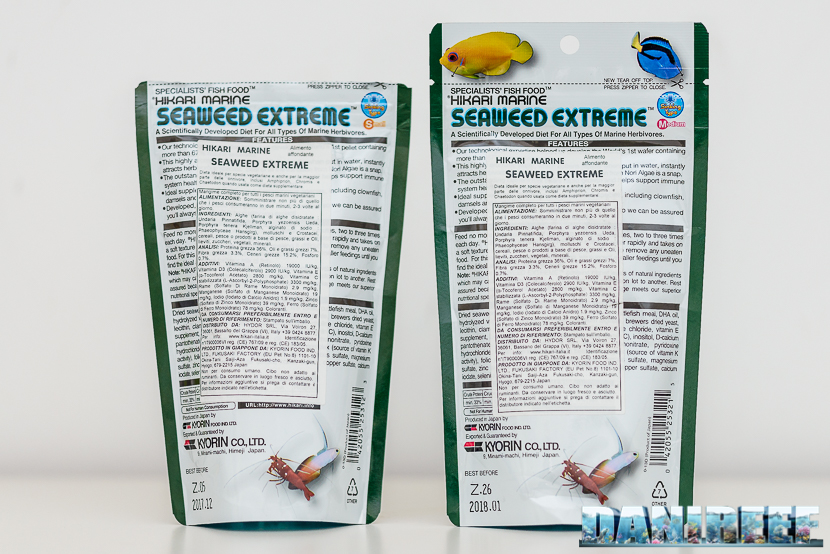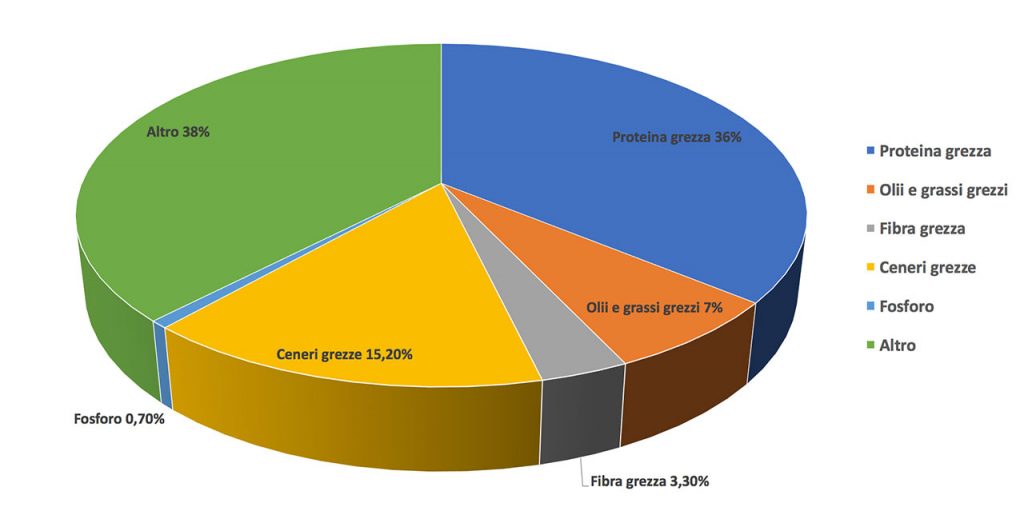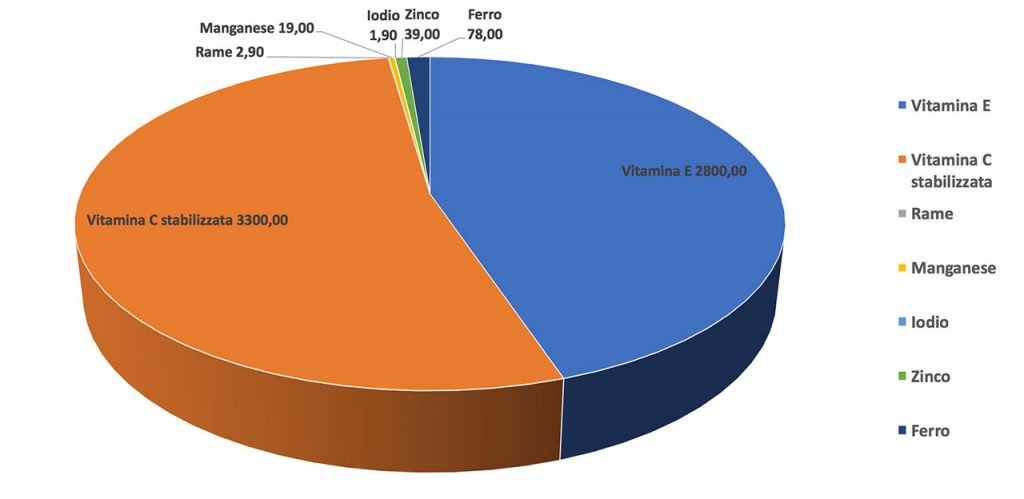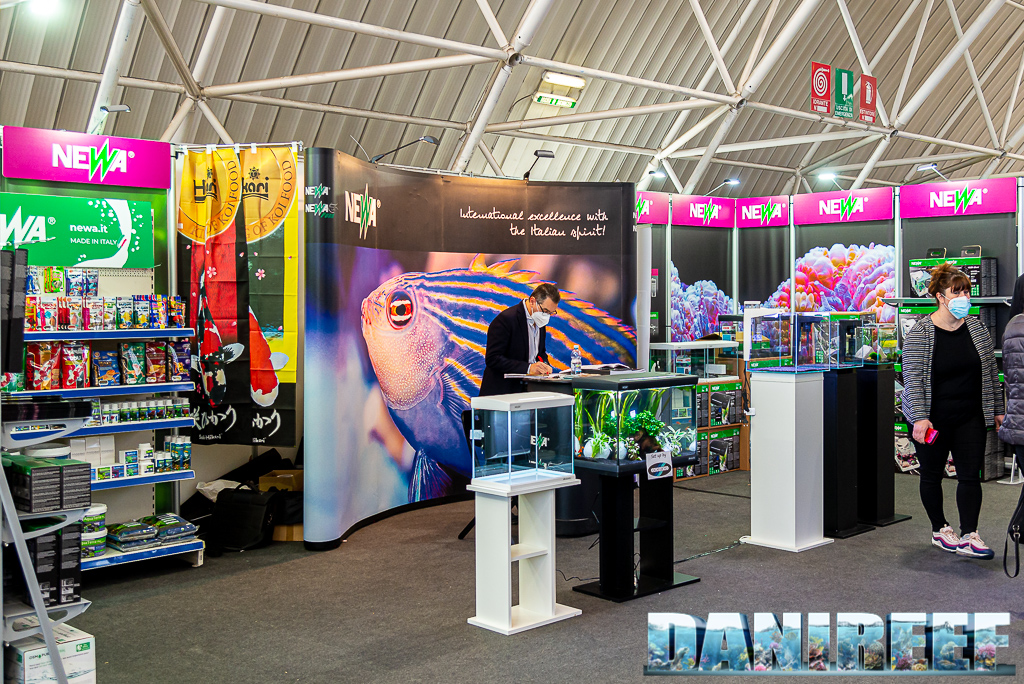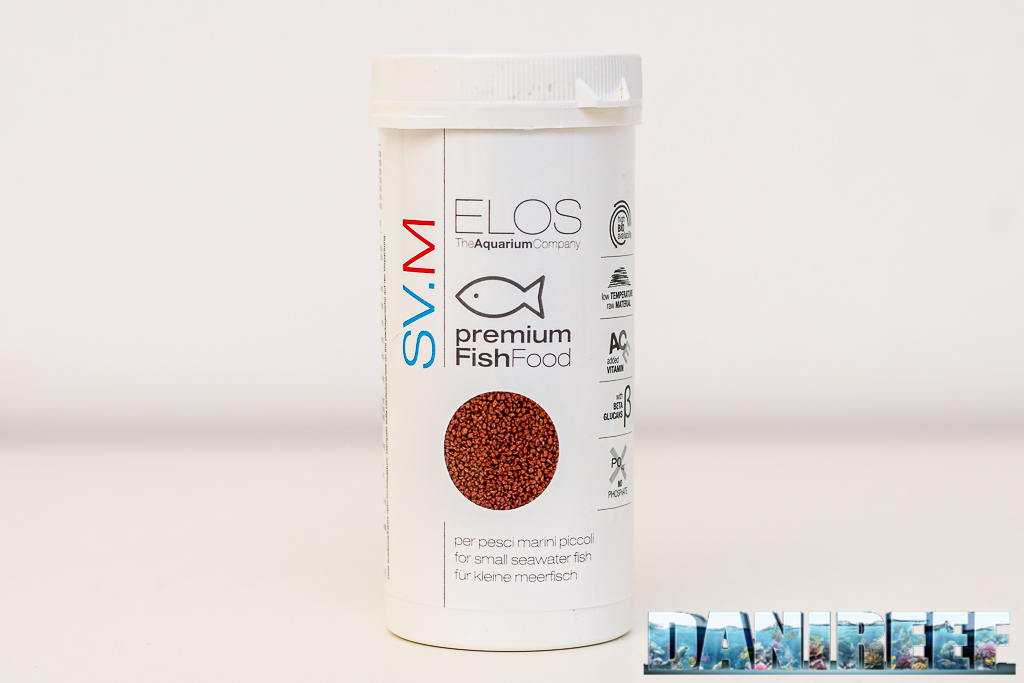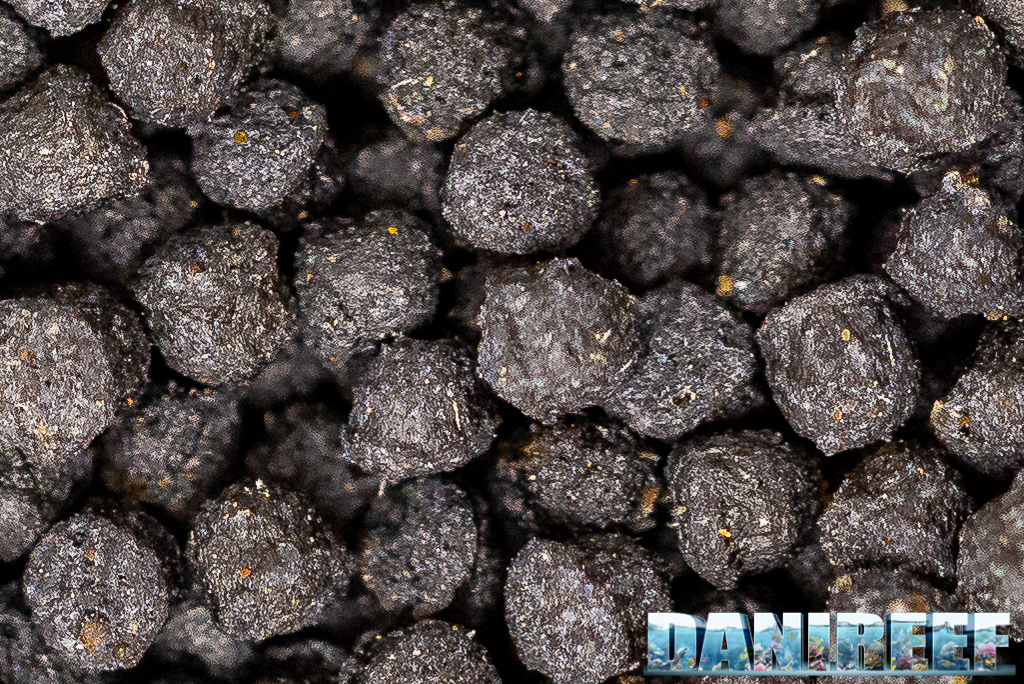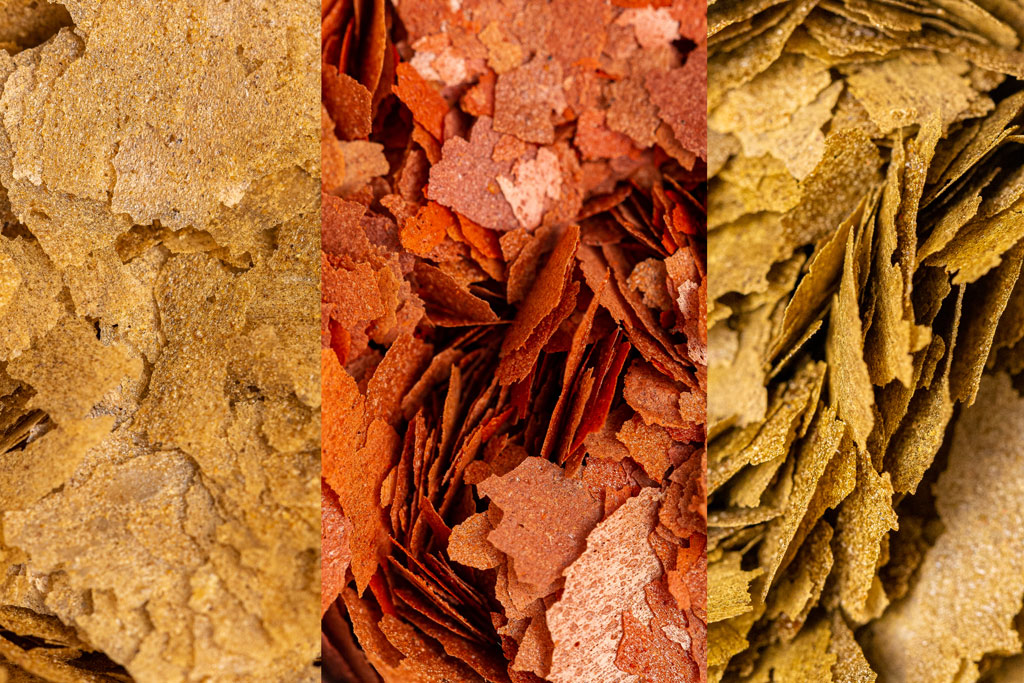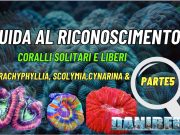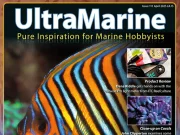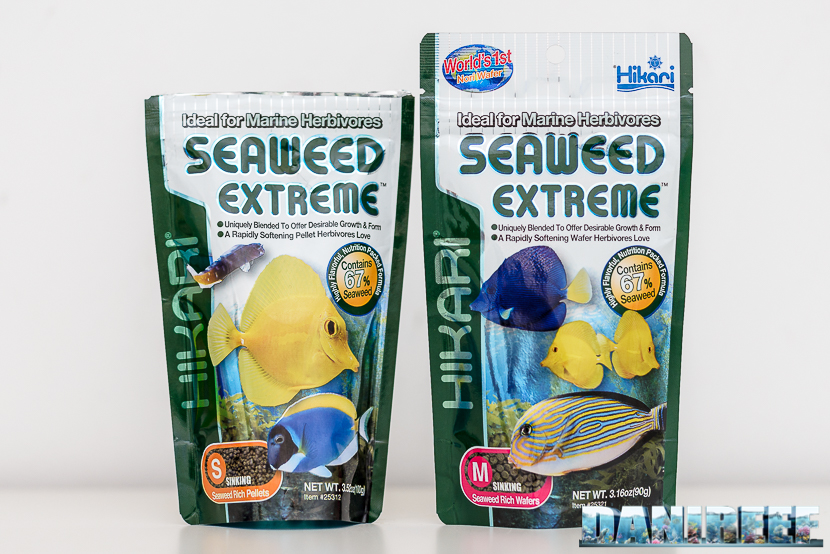 Seaweed Extreme is a granular feed made by seaweeds proposed by the popular Japanese brand Hikari.
Seaweed Extreme is a granular feed made by seaweeds proposed by the popular Japanese brand Hikari. ![]() clicca qui per l’articolo in italiano.
clicca qui per l’articolo in italiano.
Some months ago we talked about Marine A, of the same brand, as a general granular feed (article), but we’re using right now both types of feed in our aquarium.
Seaweeds are a necessity for a lot of different types of marine fish, in particular the surgeonfishes (if you want here’s a beautiful article about the surgeonfishes written some years ago). So that’s the reason because on the packages are depicted the Zebrasoma flavescens, the beautiful Acanthurus leucosternon and a Salarias fasciatus, and on the other part a couple of Zebrasoma flavescens, a Zebrasoma xanthurum and an Acanthurus lineatus, great seaweeds eaters. Our problem is to give them a balanced feed, a feed that adds some useful compounds to the bare seaweeds to be perfect for the diet of these beautiful fish. The Seaweed Extreme has a 67% of seaweeds concentration, for example.
Hikari Marine feeds are granular feeds sold in two different sizes, M ed S. S is for small, and M for medium, and they suggest the sizes of the fish they’re made for. Hikari Marine pellets are sponge type.
They seem to be very appetizing even if they sink rather quickly. And it’s a characteristic reported right on the package. In fact, if the pellets remain in the ring for the food placing, they stay on the surface, but if the fish come to eat the water movement makes them sink quickly.
On the outside of the package is correctly reported the deadline data.
Hikari Seaweed Extreme composition
The feed resulted to be composed by the following ingredients:
- seaweeds (desiccated seaweeds flour, Undaria pinnatifida, Porphyra yezoensis ueda, Porphyra tenera Kjelmann, sodium alginate, Phaeophyceae hansgirg);
- shellfish and crustaceans;
- cereals;
- fish or fish products;
- oils and fats;
- yeasts;
- sugars;
- vegetables;
- minerals.
The rich variety of minerals of the feed is possible to be seen also from the macro structure of the pellets, as you can see in the following pictures.
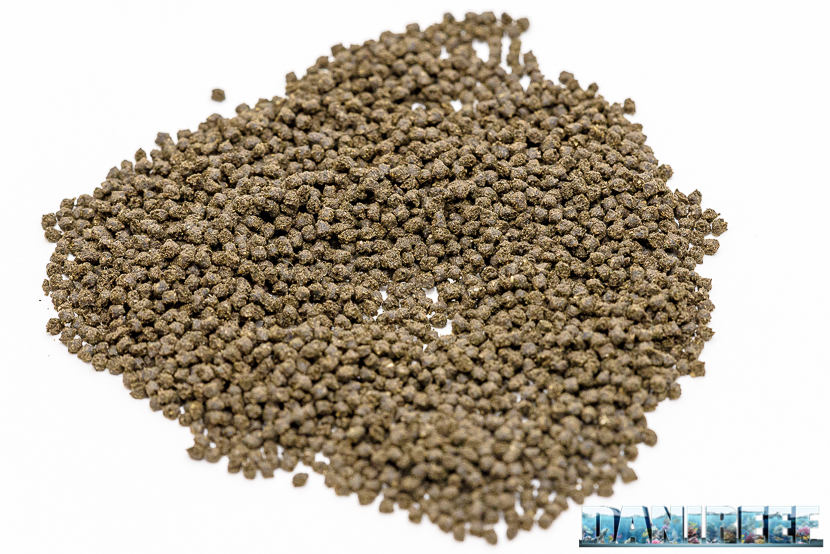
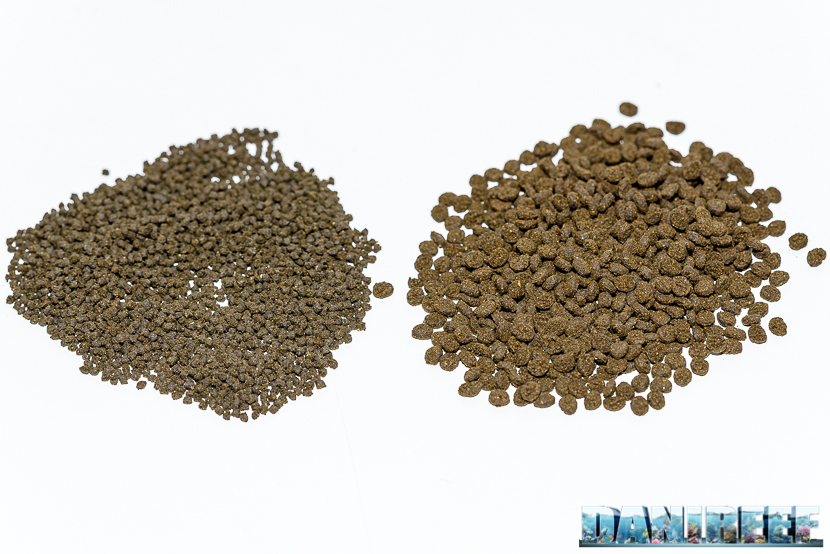
Here’s the nutritional analysis:
- Crude protein 36%;
- Crude oils and fats 7%;
- Crude fibre 3,3%;
- Crude ash 15,2%;
- Phosphorus 0,7%.
The amount of phosphorus is very low. The ash are a bit high, while the fats are enough contained. The “other” part is very wide, even if it should contain the mineral salts and the residual moisture: they’re both high for seaweeds. There are enough proteins, but in a lower number than a generalist granular feed. I expected not to find them at all, probably that’s because they intended to create a balanced and complete feed for herbivorous fish. For example, there’s the Acanthurus lineatus, among the surgeonfishes, which tends to eat only seaweeds.
Vitamins
But we have these addictions:
- vitamin A (retinol) 19.000 IU/kg;
- vitamin D3 (cholecalciferol) 2.900 IU/kg;
- vitamin E (alfa-tocopheryl acetate) 2.800 mg/kg;
- stabilized vitamin C (ascorbic acid 2 with polyphosphates) 3.300 mg/kg;
- copper (copper monohydrate sulfate) 2,9 mg/kg;
- manganese (manganic monohydrate sulfate) 19 mg/kg;
- iodium (calcium iodate anidro) 1,9 mg/kg;
- zinc (zinc monohydrate sulfate) 39 mg/kg;
- ferrous (ferrous monohydrate sulfate) 78 mg/kg;
- colorants.
It’s necessary to notice that the vitamins are prevalent rather than the various sulfates. Moreover in these seaweeds there’s a strong concentration of vitamin C, in fact it’s the most present additive. The minerals are present in few quantities compared to a traditional granular feed, so we have more vitamins than minerals.
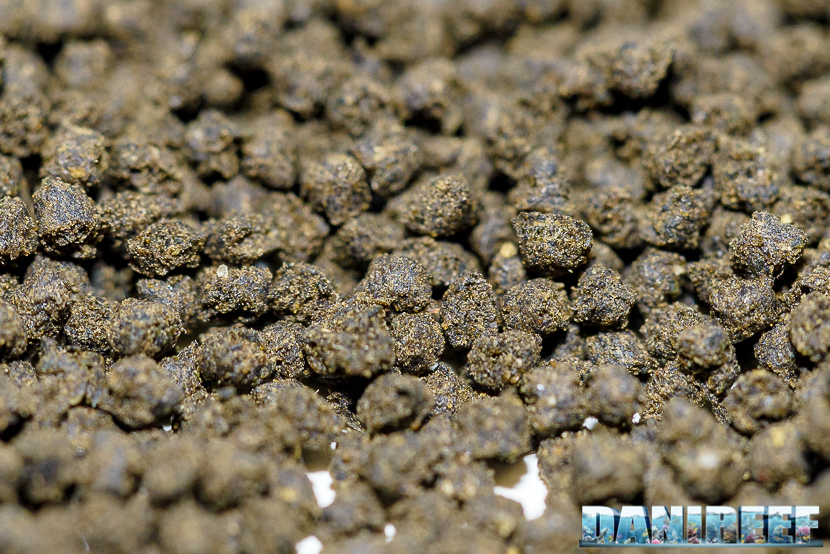
Hikari Marine feed is contained in a package completely sealed by an aluminum layer, to preserve the food. Moreover it has a pressure closure to maintain the food fresh once opened. The contain changes depending on the packages: for the small size it’s possible to find 45 or 100 grams packages, for the medium size there’s just the 90 grams option.
I have to say that I prefer the classic aluminum can with the backelite closure, because with this system I always wonder if I closed the package well.
The feed cost
The Hikari Seaweed Extreme M costs 8,79 euro, while the Hikari Marine S 5,49 euro of 45 grams and 9,89 euro for 100 grams. It’s like 9,8 cents per gram for the bigger feed and 12,2 cents for the small one in the 45 grams option and 9,9 cents for the bigger package. It’s just become available also a M size of 250 grams and costs 20,89 euro, with the lower price of 8,3 cents per gram.
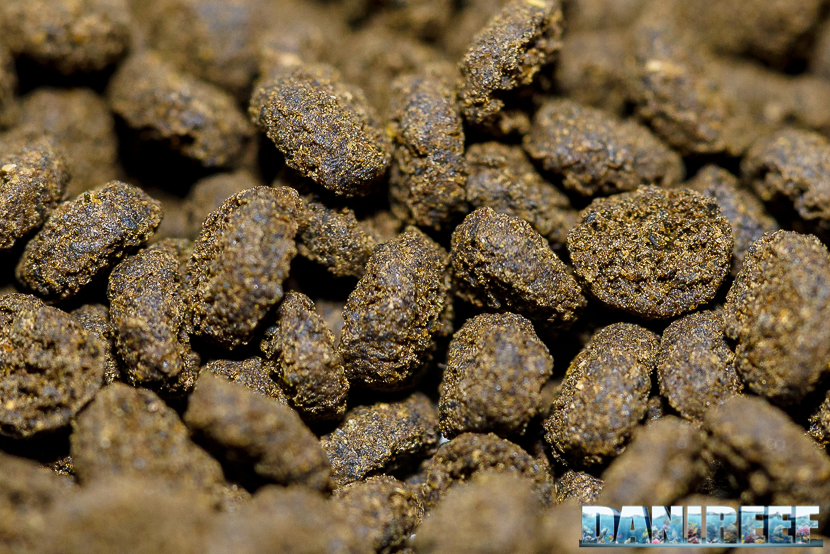
For a more information about fish feeds, you can read the following article of some years ago, but always actual: the fish feeding.







